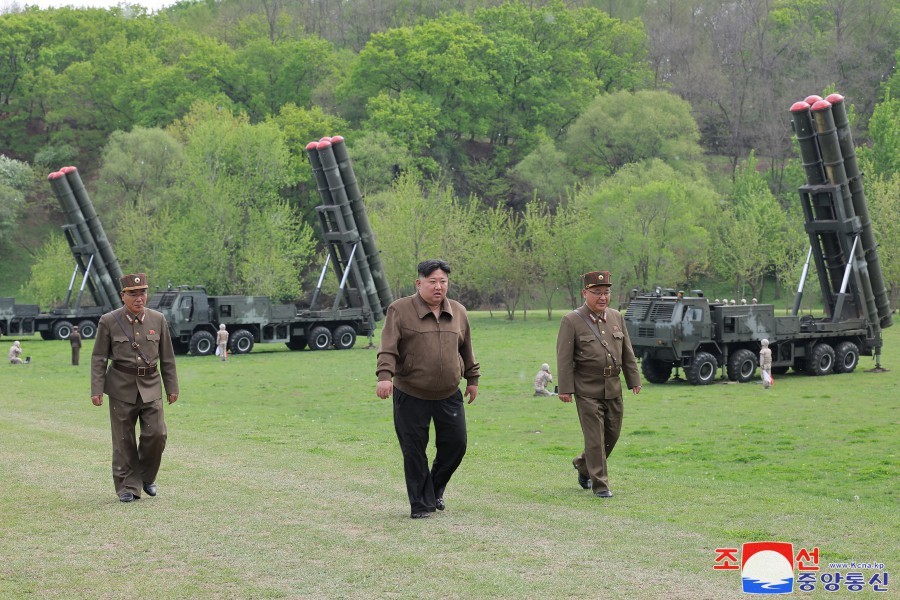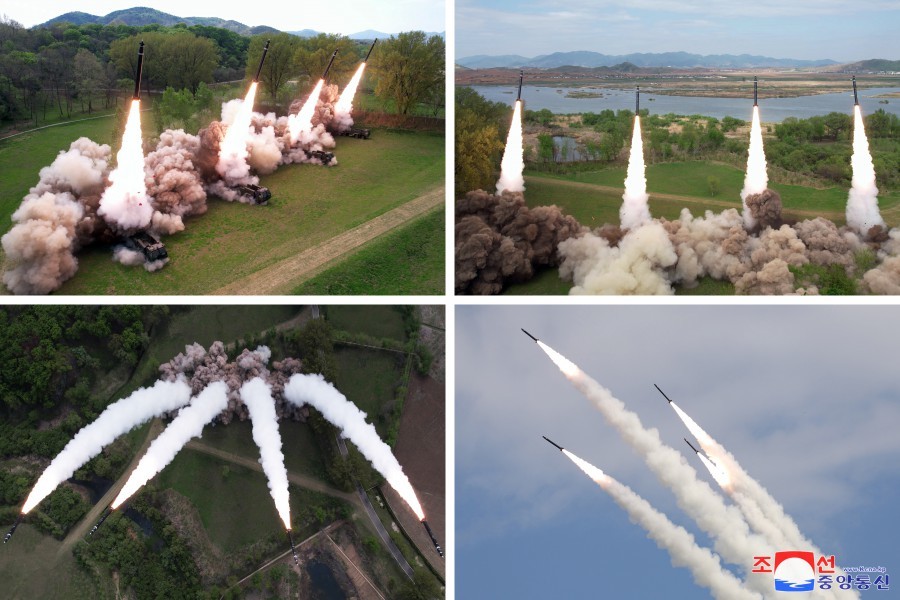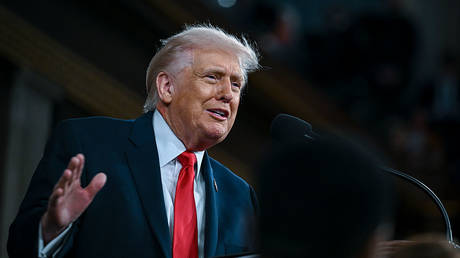
Pyongyang has held a large-scale combined “nuclear counterattack” drill
Pyongyang has carried out a drill designed to test the nuclear forces’ coordination system in a counterattack scenario, the state Korean Central News Agency (KCNA) reported on Tuesday. North Korean leader Kim Jong-un personally observed several super-large multiple rocket launchers firing a salvo of missiles towards an island in the Sea of Japan.
The exercise was held on Monday and came just days after the Democratic People’s Republic of Korea (DPRK) tested a new “super-large warhead” cruise missile and a new type of anti-aircraft missile, amid ongoing joint US and South Korean air force exercises on the peninsula.
The drill’s main purpose was to test for the first time the country’s so-called “nuclear trigger” command and control system, as well as strengthen “prompt counterattack capacity of the state nuclear force”, KCNA wrote. The military units involved in the drill honed the procedures and the order of operations in a hypothetical scenario when North Korea’s highest level nuclear crisis alarm is issued in response to an attack.

© Korean Central News Agency (KCNA)
The salvo of missiles with simulated nuclear warheads “accurately” hit the island target some 352 kilometers away, KCNA stated, adding that North Korean leader Kim Jong-un expressed “great satisfaction” with the results of the exercise.

© Korean Central News Agency (KCNA)
The US, South Korea and Japan all condemned the launches as a threat to regional and international peace and security. The issue will be “on the agenda” when US Secretary of State Antony Blinken travels to Beijing this week, State Department spokesperson Matthew Miller told the press on Monday.
READ MORE: Japan and South Korea accuse North of missile launches
Pyongyang has meanwhile dubbed the drills a “clear warning signal” to its “enemies,” accusing them of running a “military confrontation racket” operation. The joint US and South Korean air force exercises, set to run until April 26, have run a hundred sorties per day on average, while not even trying to conceal its “extremely provocative and aggressive nature,” KCNA claimed.




